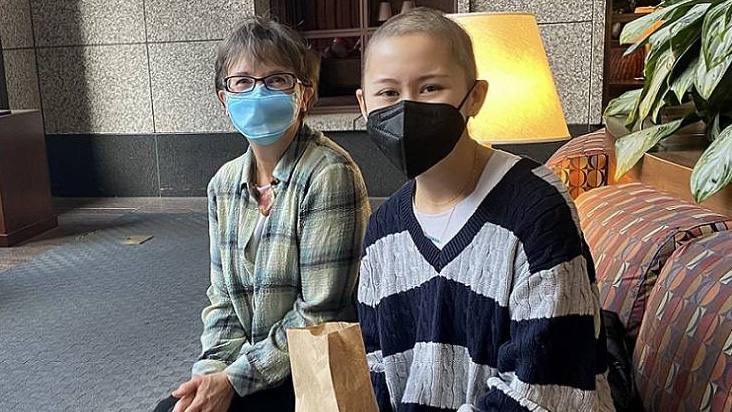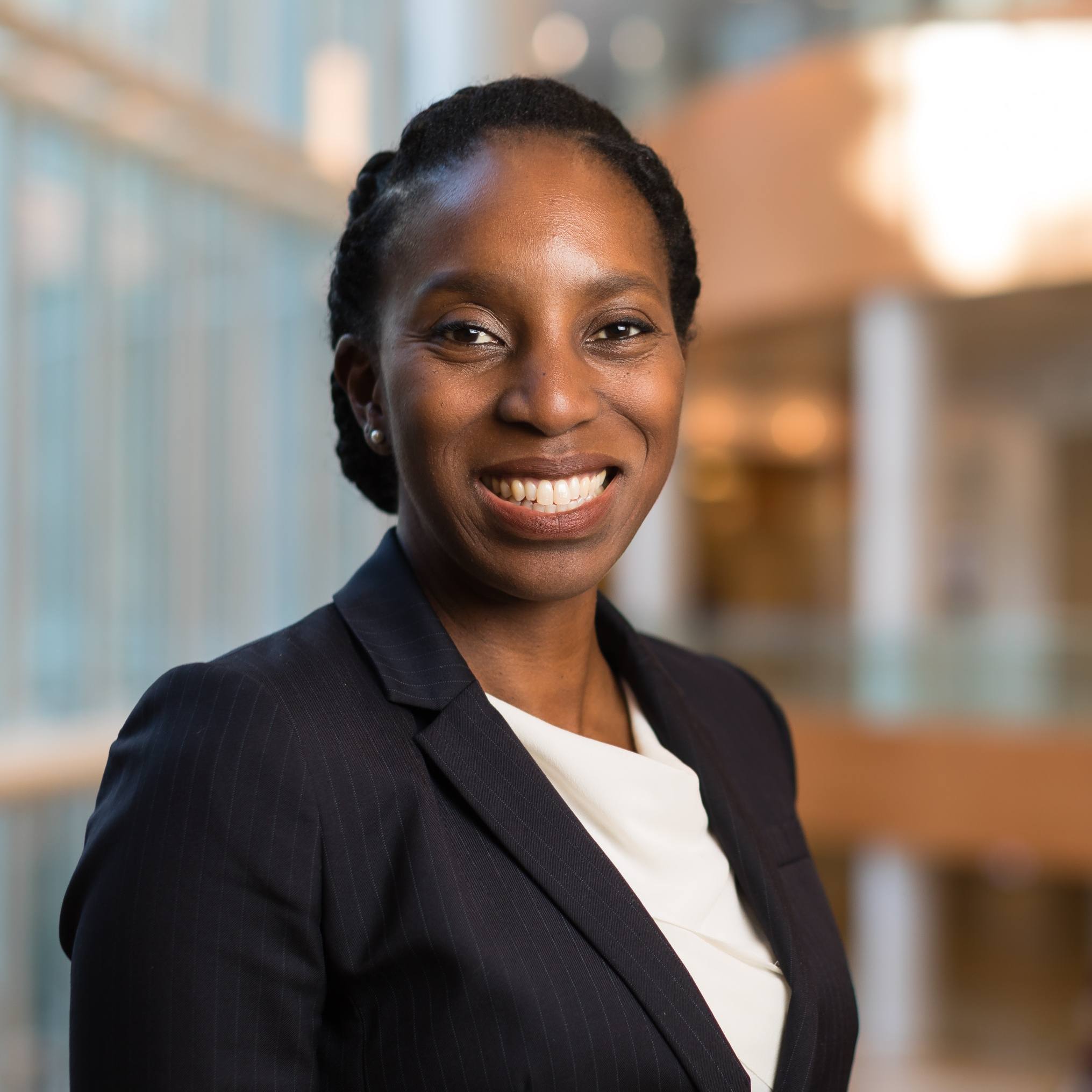
Editor's note: The Mayo Clinic Connect volunteer mentor featured in this story has asked that her Connect handle — @LoriBMT — be used in place of her name.
In 2019, 65-year-old @LoriBMT sat in a Mayo Clinic lab area awaiting her turn for blood work. She had been in the hospital for more than six weeks following a bone marrow transplant.
@LoriBMT is a positive person, but after weeks of feeling tired and week, she wasn't sure she would ever feel healthy again. When she looked in the mirror, she saw a bald head and pale, saggy skin.
Then a woman in the waiting room struck up a conversation and shared that she, too, had undergone a bone marrow transplant and was there for her two-year checkup.
"She was healthy. She had hair. She was a little bit tan. She looked like this font of energy," says @LoriBMT. "Then the guy next to her said: 'No kidding. I'm here for my five-year checkup.' I walked away from that conversation so inspired and encouraged — filled with hope. I can be this person. There is life after this."
The making of a mentor
@LoriBMT had been diagnosed with acute myeloid leukemia, also known as acute myelogenous leukemia, or AML. This cancer of the blood and bone progresses rapidly.
"I was perfectly healthy. And then within three weeks, had I not been rushed to the hospital for a blood transfusion, I wouldn't have made it to the next morning," she says. "AML can come on very quickly."
The first phase of @LoriBMT's treatment began near her home in Appleton, Wisconsin, with eight weeks of chemotherapy in the hospital to put her leukemia into remission. Because her leukemia-producing bone marrow cells had undergone chromosome changes, @LoriBMT needed a bone marrow transplant to replace them with leukemia-free cells that would regenerate healthy bone marrow. She decided to go to Mayo Clinic in Rochester, Minnesota, for her transplant. There, she received infusions of stem cells from a compatible donor, known as an allogeneic transplant. This was phase two — consolidation therapy — considered crucial to decrease the risk of relapse.
@LoriBMT's grueling treatment was successful, and her experience in the Mayo Clinic waiting room inspired her to help other people navigate leukemia and bone marrow transplant. While searching for ways to help, Lori discovered Mayo Clinic Connect, an online support community for patients and caregivers.
After a year giving informal support to other people with leukemia, Mayo Clinic Connect community moderators asked her to become a volunteer mentor. Connect volunteer mentors are active members in the community who have firsthand experience with a health condition. They welcome and support new members, check in on them and moderate discussions.
"If I can help, I do," says @LoriBMT. "I only hesitated a nanosecond when asked to be a mentor."
Same diagnosis, 46 years apart

Sky Toyne, a 19-year-old college student at Iowa State University in Ames, Iowa, had been experiencing odd symptoms for several weeks in fall 2021. When she finally found time to visit a health care professional, the care team took blood samples.
"Worried looks were exchanged, and bloodwork was drawn again," says Sky.
Sky's next stop was the Emergency Department at Mary Greeley Medical Center in Ames, where a hematologist asked her a series of questions:
- Had she felt more fatigued lately?
- Was she paler than usual?
- Did she bruise easily?
Sky's answers resulted in a trip to the oncology floor. She remembers needing to look up the meaning of the word "oncology."
A bone marrow biopsy confirmed a diagnosis of acute myeloid leukemia, and the prognosis was challenging. She would need a bone marrow transplant to give her the best chance of survival. She recalls her oncologist telling her, "You're going to have to put on your boxing gloves and fight."
"She had some molecular and chromosome changes that are considered high-risk," says William Hogan, M.B., B.Ch., a Mayo Clinic hematologist. "And even though she achieved a first remission, the risk of relapsing later is high. That was the rationale for considering transplant."
As an Asian American, Sky also had a lower chance of finding a bone marrow donor match in the national bone marrow donation registry. Fortunately, her brother was able to donate his bone marrow as a half match for Sky's allogeneic transplant. "Sibling match — that's our first choice," says Dr. Hogan. "There's a 1 in 4 chance that your brother or sister would be a full match. And there's a 50% chance that they would be a half-match."
Sky completed remission induction therapy at Mary Greeley Medical Center and went to Mayo Clinic for consolidation therapy, which included a bone marrow transplant in February.
Finding mentorship on Mayo Clinic Connect
Sky's oncologist at Mary Greeley Medical Center did his best to prepare Sky and her family for the intense therapy she would need.
"He said: 'You're starting a marathon. This is not going to be something where you're in the hospital and you're out and you're done.' He really set the tone for us. We understood that this was going to take all our energy and require all our focus," says Mari Toyne, Sky's mom.

Sky's parents worked together to learn as much as they could about acute myeloid leukemia and bone marrow transplant. Mari learned about Mayo Clinic Connect through patient materials she received from Mayo Clinic. She created an account and discovered a post from @LoriBMT about her leukemia experience. She took a chance and commented on one of @LoriBMT's posts.
"She reached out right away," says Mari. "It was so nice talking to someone on the other side. We talked to all the doctors, nurses and technicians. They can tell us clinically what was happening and what was going to happen. But talking to @LoriBMT — she was so inspiring. It was encouraging to talk to someone who had lived through it."
"We discussed a lot of potential issues that can happen," says @LoriBMT. "I said she's going to have some really bad days. Some days, I can move mountains, and other days I feel like I'm in a pit where there are bulldozers pushing gravel on me. Bone marrow transplant — it's not for the faint of heart."
Mari joined other groups online, including some specifically for parents of bone marrow transplant patients, but she says none have been as helpful as having @LoriBMT as a mentor.
"We can contact her and ask, 'Did you go through all this stuff?' and she explains her experience. From her symptoms to the mucositis, to the headaches to the bone pain — she covered all of that for us. So we knew what was normal and what we should expect. I can't express how incredibly helpful that was," says Mari.
Dr. Hogan agrees. "There is no substitute for talking to somebody who's gone through bone marrow transplant. Having a person you can relate to one on one — who can describe what it's like getting chemotherapy, radiation therapy or transplant, and going through some of the side effects — makes things a lot easier to understand and anticipate what will be involved. And seeing somebody who had a successful outcome provides real inspiration and hope during the difficult days," he says.
Meeting in person sparks true connection
Before Sky's transplant, @LoriBMT contacted Mari to check in and mentioned that she had an upcoming appointment at Mayo Clinic in Rochester. Sky and her family were going to be there at the same time, so @LoriBMT suggested meeting.
"At this point, we were kind of down. It was pretransplant, and we didn't know what to expect. It was kind of scary," says Mari.
They met in a patient lounge in the Charlton Building.
"I don't know what they were expecting," says @LoriBMT. "I'm 68, but I'm not old. I have all this energy. I introduced myself, and I just felt their sense of relief. We sat there for like an hour and a half just talking."
Sky and @LoriBMT had exchanged messages a few times, but meeting in person was especially meaningful.
"When you go through these experiences, it's very isolating," says Sky. "Being able to see someone walking and breathing that had already gone through everything I was about to go through with the transplant was really cool. I actually got to see someone who had experienced it all, and @LoriBMT is an awesome image of life after transplant because she's healthier than most people who haven't been through what we've gone through — and she's 68."
"Sky and I connected on a visceral level," says @LoriBMT. "I'd say: 'I bet you're at the point where you're really sick and tired of people telling you how brave you are. And every morning you go out and you're just trying to get through five minutes at a time.' And she'd say: 'Yeah! Oh, my gosh, I think you're in my head.'"
"@LoriBMT and I really latched on to each other because I think we are both very stubborn," says Sky. "One of the first things I told my parents was that I was not going to die from this. It's just not going to happen."
"Sky and I just bonded," says @LoriBMT. "I'm so amazed by the presence of this young woman. She has a very deep, abiding faith that she's going to make it through this."
The spirit of endurance
@LoriBMT and Sky continued to connect regularly after meeting in person. At one point, as Sky was recovering from her transplant, she asked @LoriBMT to share how she found her will to live.

@LoriBMT wrote Sky a letter explaining how she was able to endure her diagnosis and treatment.
"I changed it from 'will to live' to 'spirit of endurance,'" she says. "You never stop pushing yourself to keep going. That is the spirit of endurance. That plays a huge role in people. I never wanted to die, and I never gave up, but there were days when I asked, 'Oh, my God, how does a human being come back from this?' But if you don't like something, then you make a change. That's what keeps pushing me forward. I'm not going to let cancer take me down if I have an opportunity to go past it. The only two things we really have control over are our effort and our attitude."
Mari and Sky are grateful for @LoriBMT's mentorship and generosity. Mari encourages others to seek out patient mentors on Mayo Clinic Connect.
"I highly encourage people to at least check it out, even if they don't write anything," says Mari. "The information there is very, very helpful."
The people there are helpful, as well. Describing her commitment to her role as a connect mentor, @LoriBMT says, "I honestly feel like this is one of the reasons I was spared."
Learn more
Learn more about acute myeloid leukemia and bone marrow transplant, and find an acute myeloid leukemia clinical trial at Mayo Clinic.
Join Mayo Clinic Connect and learn how to become a Connect Volunteer Mentor.
Also read these articles:
- "Leukemia: A cancer that affects children and adults."
- "Diversity in bone marrow transplantation gives gift of life to mom of five."
- “Mayo Clinic Minute: Bone marrow diversity is needed.”







